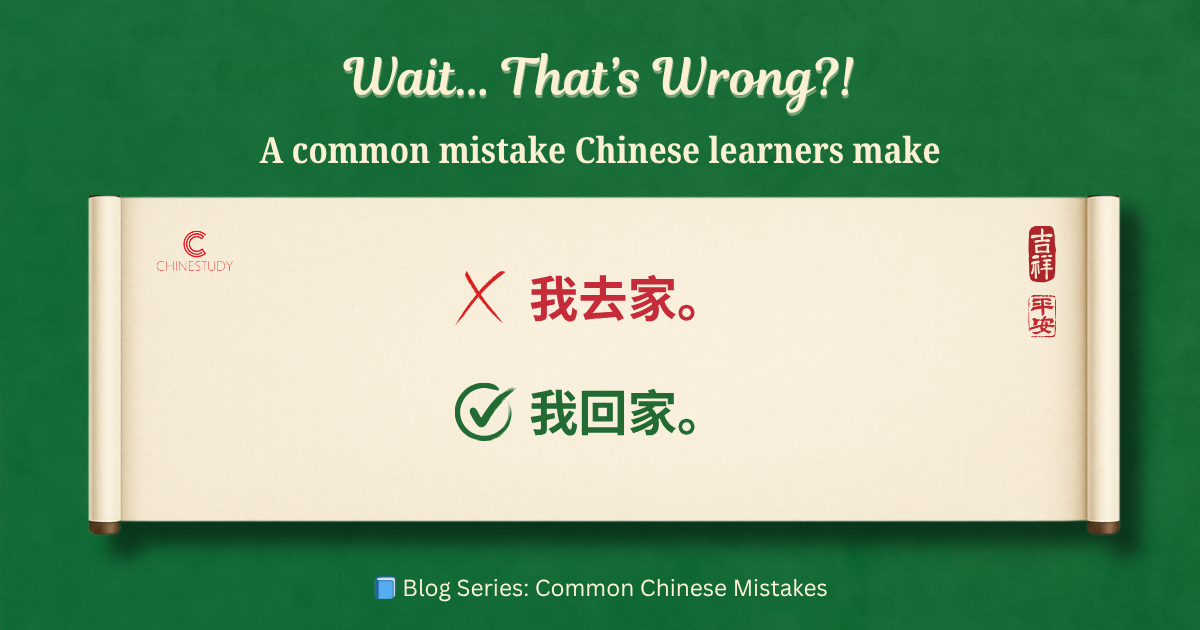🏠 回家 vs 去家 – Why "Go Home" in Chinese Needs the Right Verb | Common Mistake Guide

❌ The Wrong Sentence
“我去家。”
(Wǒ qù jiā.)
You might think it means “I’m going home,” but in Chinese, it’s not just awkward — it’s incorrect.
✅ The Correct Sentence
✔️ “我回家。”
(Wǒ huí jiā.)
→ I’m going home.
In Chinese, when you return to your home (your own place), we don’t say “go home.” We say “return home” — 回家.
🔍 Why is "回" Better than "去" Here?
In Chinese:
- 回 (huí) doesn’t just mean “to return.” It also carries a strong emotional sense of coming back to where you belong, like returning to your own place or origin.
- 家 (jiā) means home — a place that represents identity and emotional roots.
So, “回家” is not just about location — it means:
➡️ I’m going back to where I belong.
Same idea with:
- 回国 (huí guó) — returning to your home country (not just going there)
👉 On the other hand, “去” (qù) just means “go” — it shows direction, but no sense of returning or belonging.
That’s why:
- ❌ 去家 (wrong — no emotional sense of return)
- ✅ 回家 (correct — expresses return to your own place)
📚 More Examples
1.
我下班后回家吃饭。
(Wǒ xiàbān hòu huí jiā chī fàn.)
➡️ I go home to eat after work.
2.
他明天回国。
(Tā míngtiān huí guó.)
➡️ He’s going back to his home country tomorrow.
3.
我想早点回家休息。
(Wǒ xiǎng zǎodiǎn huí jiā xiūxi)
➡️ I want to go home early and rest.
💡 Easy Tip to Remember
If the place you're going is your home or homeland, use “回” — not “去.”
Think:
🧭 回 = returning to where I belong
🚶♂️ 去 = just going somewhere
🎯 Interactive Practice
Which one is correct?
A. 他明天去家。
(Tā míngtiān qù jiā.)
➡️ ❌ He goes home tomorrow. (Incorrect)
B. 他明天回家。
(Tā míngtiān huí jiā.)
➡️ ✅ He goes home tomorrow. (Correct!)
🚀 Final Reminder
In Chinese, “家” and “国” are not just places — they represent identity and belonging. That’s why we use “回”, not “去.”
Next time, don’t say “去家” — say “回家” like a native! 🏠🇨🇳
📘 Want to avoid more Chinese mistakes?
👉 Check out the full blog series: Oops! Chinese Mistakes.
Thank you for subscribing!
Have a great day!